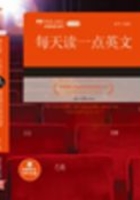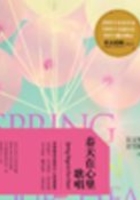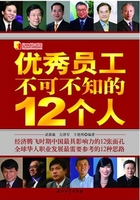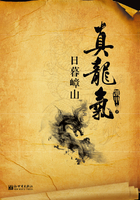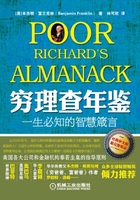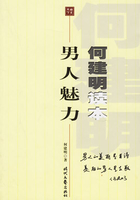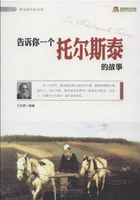亲人们总是将他们的问题在即将抉择的那刻提出,然后等待我给出建议。我不喜欢在这样的情况回答问题,假如说他们愈加僵化,那就等于说自己大无可用之处了。我尽可能地作出回答,并祈祷我的建议能对他们有所帮助。然而,我又怎能知道所有的事情?这和给女儿建议不同,给父母建议需要设身处地地思考。他们向我咨询,就是对我的信任,正如我一直相信他们那样。
我是一名高中老师,我的学生将会考入大学,或参军,或工作。每天,都会有学生问我如何规划未来之类的问题,而不是咨询如何学好功课。很多人还未意识到,高中毕业是人生的关键转折点之一。的确如此,这些年轻的孩子正在离开一个占据他们生命四分之三的时代。
因此,在他们离开校园的那一刻,我告诉他们,什么行业是朝阳行业,他们要服什么样的兵役,以便实现自己的梦想。有时,我只告诉这些年轻的孩子,生活是美好的,他们正幸运地处于人生最美好的阶段,即将长大成人,应该说是很幸运的。每次他们离开时,我都祈祷自己给予他们好的建议。我知道,我尽力了。
偶尔,素不相识的人也向我征求建议。学生家长常会问我,怎样做才会使孩子前途光明。有时也会问,怎样才能让孩子听他们的话或者相信他们。我想,他们之所以问我,是因为他们确信我知道答案,或者他们看到我的头发白了,胡子也白了,就相信我这个岁数足以解决这些问题。
韦氏关于“建议”一词的定义中最主要的问题是——没考虑建议者。给出建议的人理解这个问题吗?能帮忙解决吗?我给过女儿、父母、学生和陌生人正确的答案吗?
我觉得我该打电话给女儿了,向她征求些建议。
每个人都会有需要建议的时候。当他人出于信任向你请教时,要认真地帮助他,这种信任多么美好。当你需要帮助时,不要担心,一定有爱你的人随时准备替你分忧。
1. When my daughter was small I looked forward_________ giving her advice. In fact, I sincerely believe that she_________ enjoyed it. For the most important thing a Dad can do is get his child ready for life._________ that I ever thought I was ready but at least I have been able to survive my years, so far.
2. In fact, I am a high school_________ who works with young adults who are about to embark on careers that include college, the military, or_________. Every day I am asked questions concerning_________ they should organize for their futures, away from a life that centered on their public school.
1. 女儿小的时候,我渴望能给她建议。
____________________________________________________________________________________________________________
2. 让孩子对生活有所准备,是父亲最重要的事情。
____________________________________________________________________________________________________________
3. 偶尔,素不相识的人也向我征求建议。
____________________________________________________________________________________________________________
1. It was as though our separation necessitated that she would once again need, and seek out, my advice.
seek out:搜出;找出;想获得
_____________________________________________________________________________________________________________________
2. In other words, it is a little quieter than a whisper.
in other words:换句话说,也就是说,换言之
_____________________________________________________________________________________________________________________
生活态度最重要
One’s Life Attitude Is Important
拉塞尔?康威 / Russell Conwell
I was attending a seminar in Sydney in April and picked up a lecture note. In it was a reflection on “Attitude”.
Let me quote the anonymous writer:
“The longer I live, the more I realize the impact of attitude on life. Attitude, to me, is more important than fact. It is more important than the past, than education, than money, than circumstances, than failures, than successes, than what other people think or say or do. It is more important than appearance, intelligence or skill. It will make or break a company, a church or a home.
“The remarkable thing is that we have a choice every day regarding the attitude we will embrace for that day. We cannot change the fact that people will act in a certain way. We cannot change the inevitable. The only thing we can do is to play on the one string we have, and that is our attitude.
“I am convinced that life is 10 percent what happens to me and 90 percent how I react to it. And so it is with you. You are in charge of your attitude.”
This means that no matter what happens to you, it is how you react or respond to it that is important.
You can’t control or influence certain events in life—earthquake, sabotage, terrorist bombings, being struck by lightning, a freak traffic accident and so on. But you can control how you think and feel about such incidents, even when you are the unfortunate victim of an accident.
You can choose to moan and groan about your misfortune, about what you have lost physically or financially. Or you can choose to count your blessings that you are still alive, that you have most of your physical or mental faculties. A prolonged negative attitude would make you miserable and regressive whereas a change to a positive attitude would spur you to think of possibilities.
You could be taunted or discriminated against if you lost a leg, arm or an eye. You can’t help some insensitive people doing such things. If you fret over what is said and what has been deprived of you, does it make you any happier, determined, persevering or resourceful?
The right attitude to take is not to let insults, sarcasm, rudeness, ridicule or mockery bother you. Why respond negatively to such behaviours of other people? It doesn’t pay to strike back contemptuously at them. If you do, you are showing that you are emotionally weaker.
Show that you are emotionally stronger, that you do not have to trade insults with insults, that what they say or do does not bother you at all. Show the dignity that they do not have.
The pain is not in what the insensitive people say about you or do to belittle you. The pain is in how you interpret and react to such acts.
Very often, we negatively over-react to, or “read” too much into, what people say or do. It’s a case of seeing what we want to see, regarding an issue as big when it could really be insignificant.
Even if people in reality are downright inhuman, you can choose to ignore their behaviour or not view it negatively at all. That is real self mastery.
Losing a part of the body is not the end of life. It might be the end of a career that you were trained in and the beginning of a new career but again, it might not. If the famous Stephen Hawking can speak through a computer gadget, if a golfer can still play with a metal arm, then a trainer who loses both legs or arms can still find some other ways to teach.
When you lose hope, when you despair, when you blame people all the time, when you do not even want to try and persevere, then you choose to make life meaningless for yourself.

